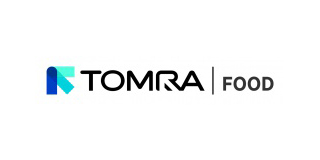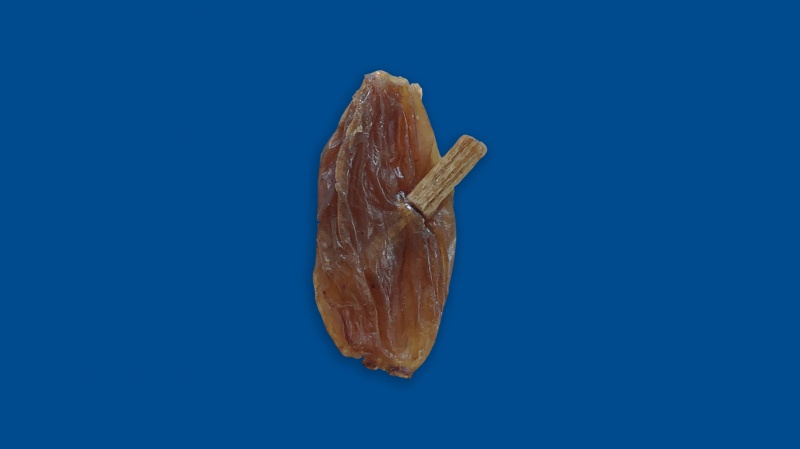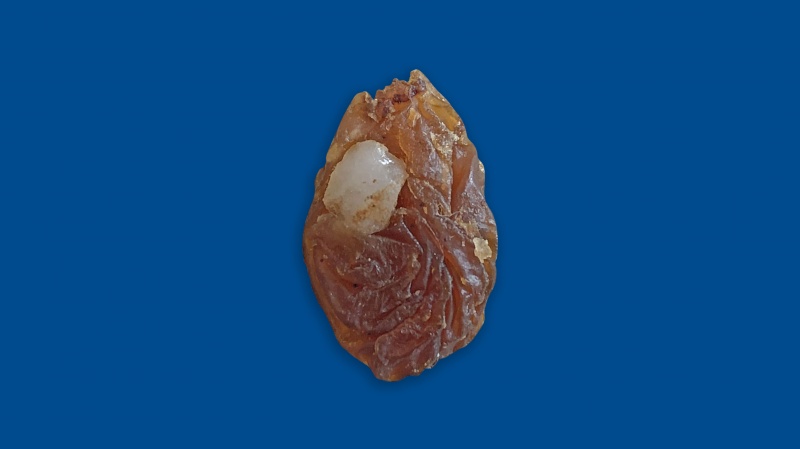

TOMRA Food
Conditioning , Processing
How raisin processors can profit from massive global demand
The raisin market has changed and processors must change with it. Brendan O'Donnell, TOMRA Food's Global Category Director for Nuts & Dried Fruits, explains how processing businesses can protect and enhance their competitiveness

Soon after raisins were first discovered, when grapes were unintentionally left on the vine long enough to dry out, the world went wild for them. It wasn't long before raisins were being awarded as prizes to top athletes, hailed as a cure for medical ailments, and accepted in payment of taxes.
Some 2,000 years later, Ancient Rome is long gone, but the little dried grapes are still coveted. In fact, the total global value of raisin sales is greater today than ever before. And demand is rising. These are good times for raisin producers who want to increase sales and profits – but first, many must take decisive action to futureproof their processing lines.

Brendan O'Donnell, TOMRA Food's Global Category Director for Nuts & Dried Fruits
Plenty of potential
When grapes turn into raisins, the drying process results in a fruit packed with energy, fiber, vitamins, minerals, and antioxidants. What's more, raisins are durable, portable, and easy to eat without making a mess. Exactly the kind of food that busy, health-conscious consumers want.
Another factor driving up demand for raisins is the increasing wealth of developing nations: more people around the world can now afford to be choosier about the foods they buy. This is propelling the demand, already seen in developed countries, for healthier snacks and bakery products containing healthier ingredients.
Tiny raisins, then, are big business. According to market researchers*, global sales are currently worth about US $2,400 million per year, and are expected to keep rising at a compound annual growth rate of about 4.5%. By 2030, worldwide sales will be worth US $3,600 million. And looking further ahead, dried fruit and nuts will be important in helping to feed the world's fast-growing population.
Wanted: quantities with quality
In addition to increasing throughputs to keep pace with demand, processors must also deliver consistent product quality to satisfy consumers' rising expectations. Quantity and quality were traditionally seen as conflicting objectives, one to be balanced against the other when setting line speed, but today's market demands both. Foreign materials – such as stones, rocks, glass, plastics, sticks, and animal droppings – must be prevented from getting into the final product. And defective products – spoiled by embedded stones, mold, woody cap stems, and embedded stems – must be detected and ejected from the line.
 Raisin embedded calyx
Raisin embedded calyx
 Raisin embedded stone
Raisin embedded stone
At the same time as rejecting sub-standard fruit, however, it is essential to minimize food waste by discarding less good products with defective. This isn't only good for profitability but also demonstrates the commitment to sustainability that retailers nowadays expect to see from their suppliers.
These needs have uncovered a widespread weakness in the dried fruit industry: dependence on aged line equipment. Elderly machines, often installed 15 to 20 years ago, simply cannot compete on quantity or quality with today's sophisticated sorting and grading solutions. Old machinery also has the disadvantages of being more difficult to clean; of requiring more maintenance; and of losing valuable production hours to downtime.
By trading in old line equipment for new, processors can take a big leap forward in capabilities and competitiveness. And the efficiency gains typically deliver a rapid return on investment.
Two-stage sorting
Raisins are usually sorted two or three times between drying and packaging. The first sort looks only for foreign materials. The second and third sorts look for any remaining foreign materials and for product defects.
The best solution for removing foreign materials is the TOMRA 5C, a premium optical sorter originally developed for the fruit and nut industry. This achieves unrivaled sorting accuracy by combining industry-leading sensors and a high-resolution laser with TOMRA's unique Biometric Signature Identification (BSI+) technology. Every object passing down the processing line is assessed for color, shape, and biological characteristics. By looking inside materials, BSI+ can detect smaller defects than conventional spectral technology, including embedded stems and mold. The TOMRA 5C's sorting efficiency is also enhanced by TOMRA's specialized raisin shaker, which ensures optimum product feed to the sorter.
The second and third sorts are best handled by the TOMRA 5C and the TOMRA 5X. The latter is equipped with an advanced x-ray sensor, creating images of exceptionally high contrast and resolution. This is ideal for detecting high-density materials such as glass, dense plastics, and stones, including stones embedded in raisins.
Showing how it's done
A good example of how raisin processors can benefit from the best sorting solutions is Osman Akça A.S., one of the biggest raisin exporters in Türkiye, the world-leading nation for raisin exports. This business produces more than 20,000 tons of raisins annually, with 90 percent exported, primarily to countries in the European Union.
lçin Iskeçeli, General Manager of the business, says:
“Employing state-of-the-art technologies for high-quality and high-capacity production has been crucial to Türkiye's success in this industry. At Osman Akça, we have fought our way to leadership by constantly attaching great importance to quality in raisin production. We have been tapping into advanced technologies provided by TOMRA Food for 25 years. Our production technology allows us to achieve superior quality output with high food safety and to grow our exports to the European market consistently.”
Because demand for organic products is rising, Osman Akça has recently increased its production of organic raisins from 20 tons to 4,500 tons per year. This has brought new challenges because organic crops contain far greater amounts of stones and foreign materials. This is one reason why, at the beginning of 2022, Osman Akça became the first in Türkiye to own the TOMRA 5C. Another reason is that the business set itself ambitious production targets: its raisin production increased from 20,000 tons in 2020 to around 25,000 tons in 2022.
Osman Göksan, an Osman Akça board member, explained:
“We are taking our raisins and dried fruit operations to the next level. While maintaining the highest quality since the beginning of 2022, we also increased production capacity, retaining all our existing export customers and increasing our European customers by 20 percent.
“TOMRA's optical sorters help us meet the needs of export customers who have the highest expectations. By positioning the TOMRA 5C at the end of the production line, we can improve our product quality by capturing the details that other laser systems overlook. We also like the fact that the TOMRA 5C is future-proofed to be compatible with possible future innovations in optical technologies and software. Our investments in sorting technologies help us make more efficient and controlled production plans and deliver a long-lasting payback.”
Osman Akça is one of many raisin processors around the world that are thriving in an expanding global market. Others, however, aren't doing quite well, finding the business tougher every year. However, by investing in state-of-the-art line solutions, it is possible to enhance competitiveness and profitability.
About TOMRA Food
TOMRA Food designs and manufactures sensor-based sorting machines and integrated post-harvest solutions transforming global food production to maximize food safety and minimize food loss, by making sure Every Resource Counts. These solutions include advanced grading, sorting, peeling and analytical technology to help businesses improve returns, gain operational efficiencies, and ensure a safe food supply.
The company has more than 13,800 units installed at food growers, packers and processors around the world for Confectionery, Fruit, Dried fruit, Grains and Seeds, Potatoes, Proteins, Nuts, and Vegetables.
TOMRA Food operates centers of excellence, regional offices and manufacturing locations within the United States, Europe, South America, Asia, Africa and Australasia.
Follow TOMRA Food on Facebook @TOMRA.Food, Twitter @TOMRAFood, Instagram @TOMRAFood and on LinkedIn at TOMRA Food.
TOMRA Food is a division of TOMRA Group. TOMRA was founded in 1972 that began with the design, manufacturing and sale of reverse vending machines (RVMs) for automated collection of used beverage containers.
Today, TOMRA is leading the resource revolution to transform how the planet’s resources are obtained, used and reused to enable a world without waste. The company’s other business divisions comprise TOMRA Recycling, TOMRA Mining and TOMRA Collection.
TOMRA has approximately 105,000 installations in over 100 markets worldwide and had total revenues of about 12 billion NOK in 2022. The Group employs 5,000 globally and is publicly listed on the Oslo Stock Exchange. The company headquarters are in Asker, Norway.
For further information about TOMRA, visit www.tomra.com












